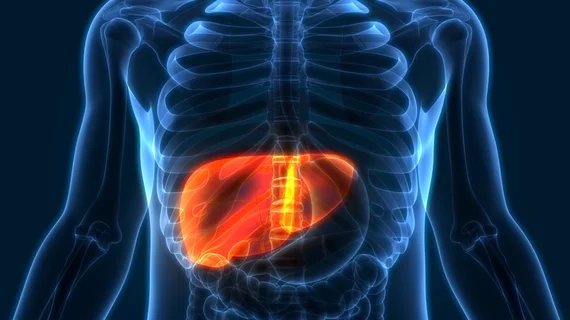PSMA-PET alters care for nearly 50% of patients with metastatic liver cancer
Radiologists can more accurately detect liver cancer metastasis using prostate-specific membrane antigen PET compared to conventional CT, new research suggests. The revelation helped change care plans for a number of patients with the disease.
Hepatocellular carcinoma is typically diagnosed via MRI or CT. But with recent studies showing the disease expresses PSMA on the surface of its cancer cells, German scientists explored whether molecular imaging may prove to be a superior approach.
“With more accurate imaging for staging of patients, we can identify early on patients who could benefit from particular treatments, like chemotherapy, which has an impact on survival and quality of life,” Nader Hirmas, MD, a physician scientist at the department of nuclear medicine at Essen University Hospital in Germany, said Sept. 30.
Hirmas and co-investigators looked back on 40 patients who underwent 68Ga-Ga-PSMA-11 PET/CT between September 2018-2019. Each received a CT along with a PSMA-PET scan, and three nuclear medicine experts analyzed the images for cancer.
PSMA-PET proved more accurate for diagnosing tumors that had spread beyond the liver, the authors reported. And as a result, original care management plans changed for nearly half of all patients (19 of 40), with many pivoting toward therapy.
Hepatocellular carcinoma ranks as the third most common cause of cancer-related death and the sixth most prevalent form of the disease overall.
Study author Wolfgang Fendler, MD, and colleagues believe the future is bright for PSMA PET imaging.
“We hope that this study encourages more research into the topic, so that multi-disciplinary oncology practices and guidelines would use PSMA PET in the diagnosis of hepatocellular carcinoma,” Fendler, vice chair of nuclear medicine at the Essen University Hospital, added. “More broadly, it shows that many of the molecular imaging techniques could supplement or even outperform conventional imaging in the diagnosis of particular tumors.”
The study was published in the September issue of the Journal of Nuclear Medicine.

